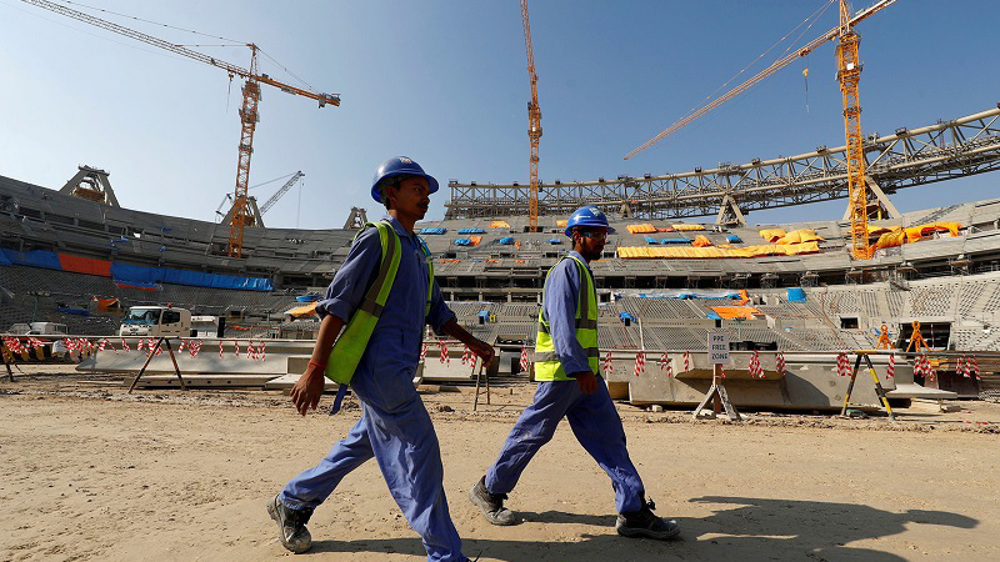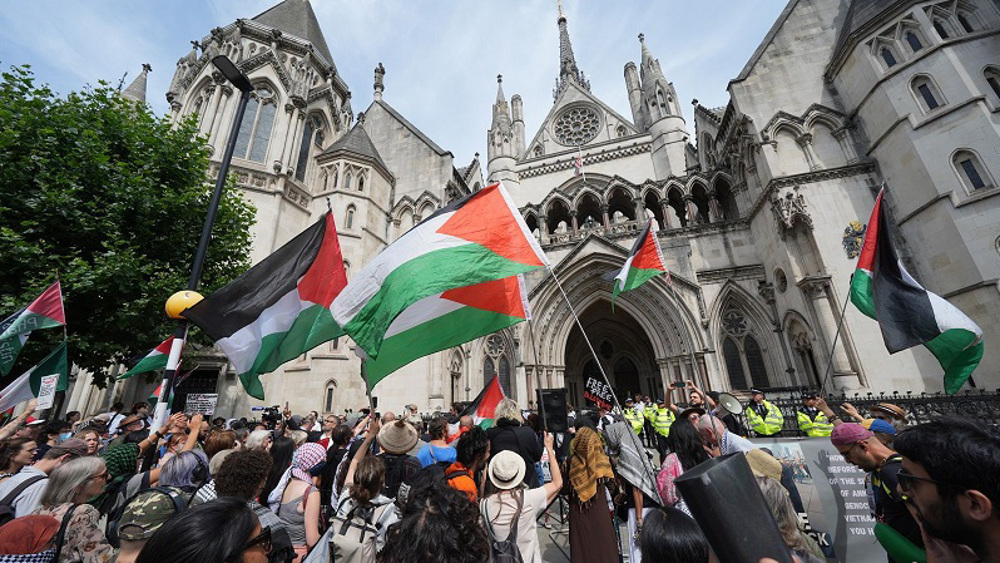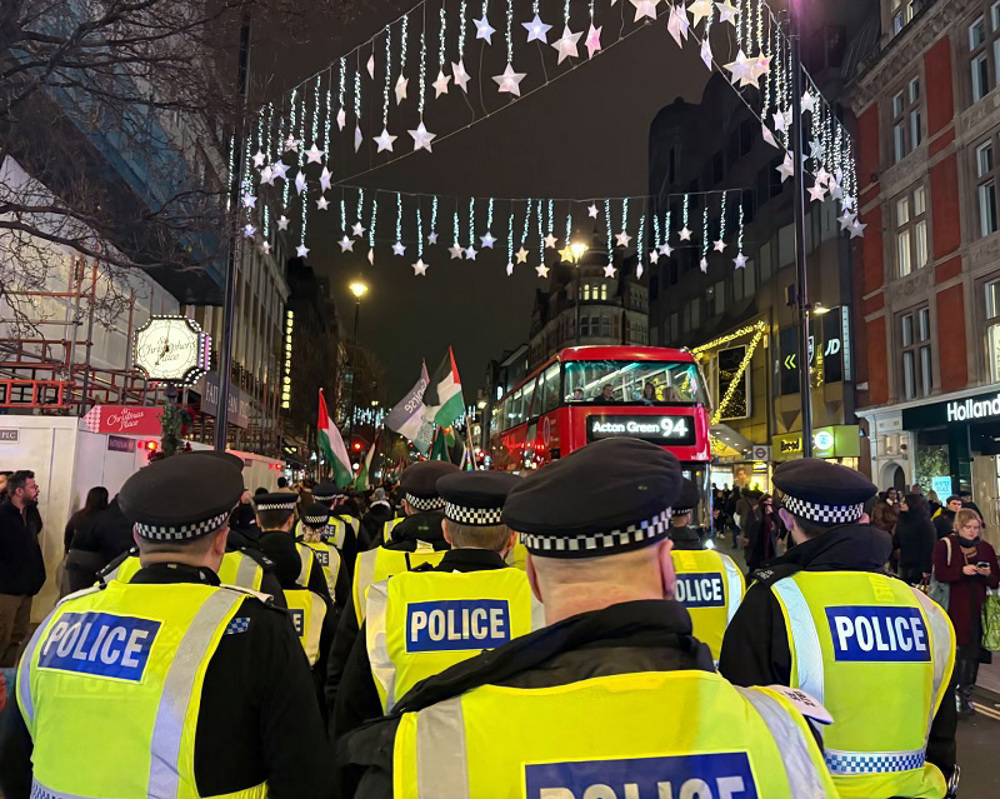Forced to work long hours and subjected to abuse
Saudi Arabia has a terrible reputation when it comes to the rights of migrant workers, who are forced to work long hours and invariably subjected to abuse.
In October 2020, the Saudi authorities announced that they were working on the notorious Kafala or sponsorship system, described by critics as "modern day slavery".
Under the Kafala system, the legal status of migrant workers is controlled by their employers, leaving them prone to abuse and exploitation.
Presently almost one thirds of the kingdom's 34 million people are composed of migrant workers and almost half of this number work as drivers.
It's hard to believe that these drivers of luxury cars are among the most vulnerable people in Saudi Arabia, but that's the infrequently reported reality.
Saudi Arabia to review notorious kafala system
While Riyadh has promised to roll out the Kafala reforms in March this year, these reforms don’t apply to 3.7 million domestic workers as they are excluded from the kingdom's labor laws.
I think they are a cosmetic exercise, because the fundamental relationship doesn't change, the laborer is still tied to the sponsor. Only after 12 months of working there can they change jobs and they have to do that process through the Saudi authorities so there's no real change. It looks very cosmetic.
Jahangir Mohammad, Director, Centre for Muslim Affairs
This means that these workers will remain at the mercy of their employers with very little, if any, legal protection.
Challenges facing migrant workers unchanged
"The challenges that are facing migrant workers still emerge from the kafala system, the crisis, whether its coronavirus or the economy, exposes the flaws in the kafala system."
According to the Al Eqtisadiah newspaper, drivers in the kingdom make up 55 percent of domestic workers. Many of them complain that their employers delay, deduct or don’t pay their salaries for up to six months at a time. That's while they are forced to work for long hours and are often subjected to verbal and psychological abuse.
Migrant drivers among most vulnerable groups in Saudi Arabia
"We don't have enough land for farming, that's why we are forced to go abroad. When we do that, employment agencies and companies trouble us."
Some of these drivers say they work for 18 hours a day without a day off, which is in violation of the kingdom's domestic worker regulation.
The fact is that these drivers – classified as domestic workers - are trapped and there is no real will from the authorities to protect them against abuse or exploitation.
In the words of Rothna Begum of Human Rights Watch, "We documented situations of domestic workers who have been confined to their employers' homes, their passports confiscated, forced to work excessive hours without rest or days off, and they happened to be subject to very specific forms of abuse, such as physical and sexual abuse."
"The "Kafala" system gives a huge power to the employers, through which they can control the life of the worker because they control, with the contract, her presence and legal residence in the country. This gives the employer the right to impose extortive conditions of employment on her. If she wanted to reject these circumstances and quit her job, she will lose her residency."
Well I think for domestic servants and laborers and drivers. This type of thing is common. And it's well documented by human rights organizations that this exploitation and abuse is going on. And sometimes we have high profile cases where that's happening. So I think there's no doubt that this is happening and it's happening on a large scale within Saudi Arabia, but also in other countries as well.
Jahangir Mohammad, Director, Centre for Muslim Affairs
Treated like slaves
In November last year, Human Rights Watch interviewed a number of Indian and Pakistani drivers who work for private employers in Saudi Arabia. Their first-hand accounts draw a grim picture of the situation they have to face every day.
One of them says, "I have to work continuously from 7 a.m. until well after midnight."
Another one says, "When they no longer need me to run their own errands, they send me to the madam’s sister’s house to run her errands."
Yet another driver says, "It’s like they own me; so they must use me every moment. Most days I do not have time to eat a proper lunch."
You know this is essentially a capitalist system of exploitation of human labor, where the laborers have no rights, they have, they can't change without anybody's permission, and the Saudis can't build their economy without this, so they are... They basically.., it's a coerced system of labor, which relies on the fact that many people will come because their own countries are so poor that this, this system, at least gives them a little bit of a wage. Of course, if their own countries were much more economically developed, nobody would work under these conditions.
Jahangir Mohammad, Director, Centre for Muslim Affairs
In another case, which shows the gravity of the situation for these foreign drivers, one Pakistani driver talks about his Saudi employer's behavior after an accident he had for which he was not to blame. He tells Human Right Watch, "My employer has withheld my monthly salary of 1,200 Saudi Riyals (US$319) ever since as punishment." "Because my employer is angry that I had an accident, my family back home is starving." "I am starving; I don’t have money to eat a proper meal."
I think we can't expect to see any improvements because basically the Saudi economy, like other growth economies, is built on this kind of exploitative labor. And therefore, they are planning this new city, and they have built their current infrastructure, through this system. It's a, it's a very capitalist system which exploits migrant labor; treats them, more or less, as property to be abused and used, and they can't build their economies without this labor, but their aim is to maximize the profits and the wealth available to the investors, who tend to be rich, wealthy, Saudi families or businesses or corporations.
Jahangir Mohammad, Director, Centre for Muslim Affairs
Due to the exploitative practices from their Saudi employers, these migrant drivers - already in debt - may end up in a worse condition. Speaking from experience, these drivers say it is a waste of time to file a lawsuit against their employers.
According to the driver who had the accident, "It is useless to go to the maktab al-amal (labor office). The men there are ruder and even less cooperative than my own employer."
Well the Saudi legal system is exploitative of laborers, migrant laborers in particular, and the whole economy and the infrastructure is built on this modern day type of exploitation of labor and, you know, this really doesn't work in their favour they are seen as second class citizens. And that's how they're treated.
Jahangir Mohammad, Director, Centre for Muslim Affairs
Most of these drivers live in constant fear as they don’t know what to do in a foreign country where migrant rights are not strict in practice. These drivers have to drive a long road before they reach a safe destination, before all these reform claims made by the Saudi authorities amount to real changes.
Explainer: How America’s foster care system harms children instead of protecting them
‘A full year of injustice’: Son of Gaza doctor Abu Safiya demands his immediate release
Trump: Zelensky doesn’t have anything ‘until I approve it’
VIDEO | Press TV's news headlines
Hezbollah rejects internal discord, will not fight Lebanese army: Senior official
VIDEO | Severe weather floods coastal roads in southern France
The Year That Was: Five Iranian women scientists who seized global limelight in 2025
Leader: US-Israeli military aggression in region defeated by Iranian youth













 This makes it easy to access the Press TV website
This makes it easy to access the Press TV website